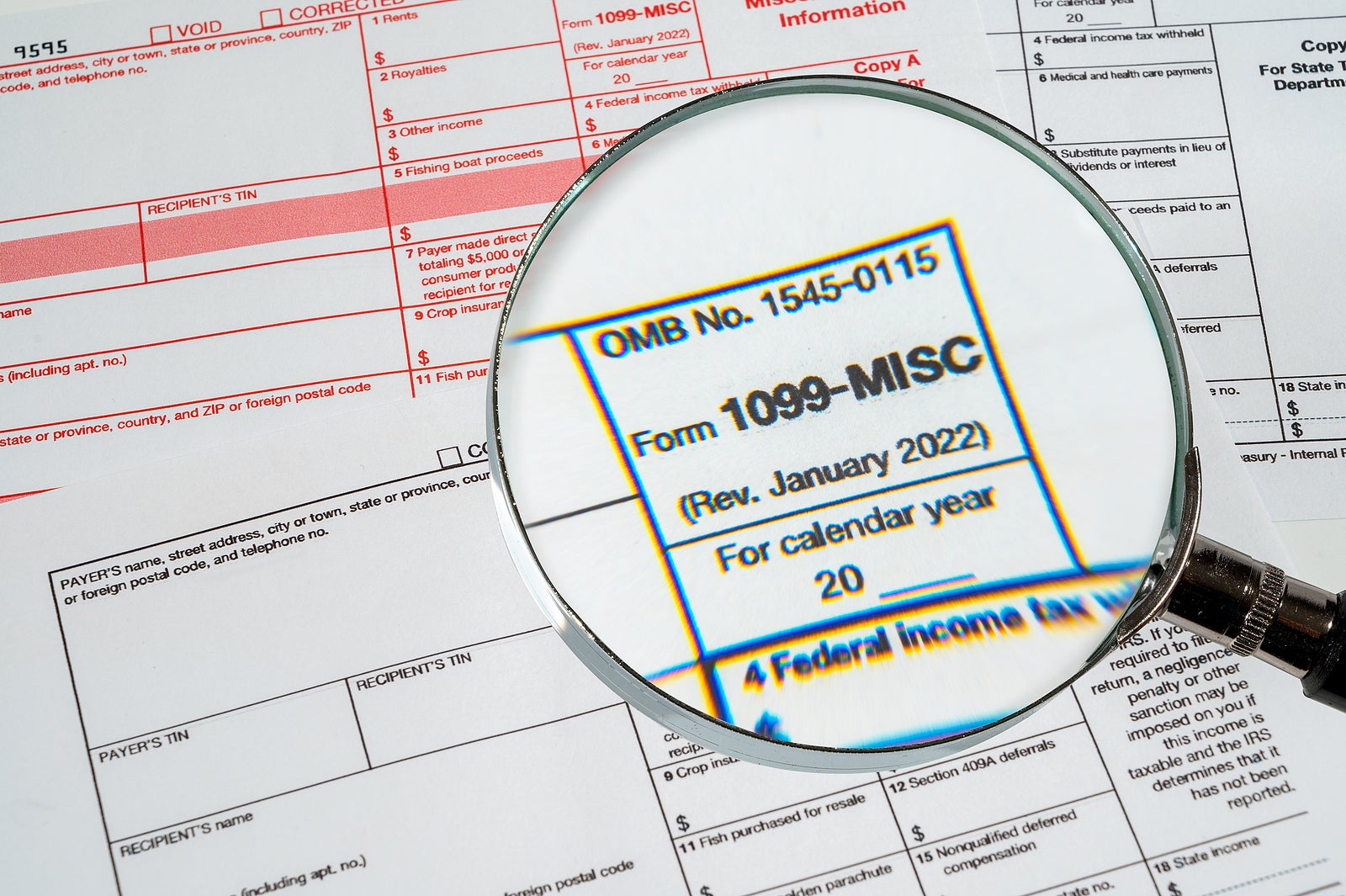
As a small business owner, there is an endless list of tasks at any given time. Running your own business often means wearing many different hats and playing many different roles. One of the most important, but intimidating of these tasks can be your IRS tax filing requirements.
The end of the year is a particularly busy time for business owners, whether your business is large or small, you will be dealing with payroll responsibilities, managing holiday time-off requests from employees, and completing your IRS tax forms as needed.
While there are many IRS tax filing requirements for businesses, the 1099 series of forms is one of the most significant.
This easy guide to filing Forms 1099 will help small businesses prepare for the end of the year before the holiday rush sets in.
What Business Owners need to know about Form 1099-NEC
Form 1099-NEC is probably the most common and essential Form 1099 for small business owners. That is because this is the form used to report non-employee compensation to the IRS.
What is Non-employee Compensation?
Before we take a look at this form, let’s take a moment to lay the foundation. What is non-employee compensation? Non-employee compensation consists of payments made to independent contractors, freelance workers, or even another small business that performs a service for you, but is not on your payroll as an employee.
If payments of $600 or more were made to non-employees for services rendered, the business is required to file a Form 1099-NEC with the IRS and furnish a copy to the recipient of the payment. When completing Form 1099-NEC, the business (payer) must provide their basic information, the recipient’s basic information, including their TIN, and the payment information.
When is the deadline to file Form 1099-NEC?
The deadline to file Form 1099-NEC is different from the deadlines of many other 1099 forms. Because the recipients of these payments likely need to include the amounts as income on their personal income tax return, the deadline to file and distribute these forms is earlier.
The deadline to file Form 1099-NEC (whether filing a paper or electronic copy) is January 31st. The deadline to distribute the recipient copies is also January 31st.
What Business Owners need to know about Form 1099-MISC
The Form 1099-MISC is used to report miscellaneous payments to the IRS. Until the 2020 tax year, Form 1099-MISC was also used to report non-employee compensation. Filers used box 7 of the form to report non-employee compensation, and if you filed Form 1099-MISC for non-employee compensation, there was a different deadline (January 31st).
As you can see, having one form with different deadlines and purposes was confusing, to clear up the confusion, the IRS revamped Form 1099-NEC for the 2020 tax year and beyond.
Form 1099-MISC is now used solely for reporting the following types of miscellaneous payments if they amounted to $600 or more:
- Rents
- Prizes and awards
- Other income payments
- Medical and health care payments
- Payments to an attorney
- Crop insurance proceeds
- Cash paid from a notional principal contract to an individual, partnership, or estate
- Any fishing boat proceeds
- Section 409A deferrals
- Nonqualified deferred compensation
- Any amount of backup withholding
- Direct sales of consumer products
- For the 2022 Tax year, small businesses may either file Form 1099-MISC (box 7) or Form 1099-NEC (box 2) to report sales totaling $5,000 or more of consumer products to a person on a buy-sell, a deposit-commission, or other-commission basis for resale.
When is the deadline to file Form 1099-MISC?
The deadline to distribute copies of 1099-MISC to your recipients is January 31st. The deadline to file paper copies of Form 1099-MISC with the IRS is February 28th and the deadline to e-file is March 31st.
Any filer that is reporting payments in boxes 8 and 10 should be filed to the IRS on February 15th.
What Business Owners need to know about Form 1099-K
Form 1099-K is another form of the 1099 series that business owners and individual taxpayers should take notice of this year. The filing requirements for this form will be drastically different when filing for the 2022 tax year.
In previous tax years, there was a threshold for transactions that needed to be reported to the IRS. This threshold was 200 transactions or $20,000 in gross volume.
For 2022 and beyond, there is no longer any threshold. Businesses that are required to report these transactions must do so if they are $600 or more. This means the number of 1099-Ks filed is going to increase dramatically for the 2022 tax year. This may also mean that taxpayers will need to report these payments on their own tax returns.
How can Business Owners Simplify 1099 Filing?
The best way that businesses can prepare for their year-end filing requirements ahead of time is by requesting W-9 forms from all the independent contractors, freelancers, or businesses and individuals that you have made miscellaneous payments to.
This form captures the individual’s or business’ TIN. Without the taxpayer identification number, filing Form 1099 will be much more difficult. The IRS requires this information and you will most likely need to file a correction form eventually.
When it comes time to file your forms with the IRS, e-filing is the best option. Not only does this filing method save time and improve the accuracy of your forms, but it is also the IRS-preferred method.
Year-end filing requirements can be cause for anxiety for small business owners, but this doesn’t have to be the case. By spending time well before the deadlines gathering the necessary information and understanding the requirements of the forms, you will be ready! Hopefully, this guide is a helpful starting point for tackling your year-end filing.
2227 Views













